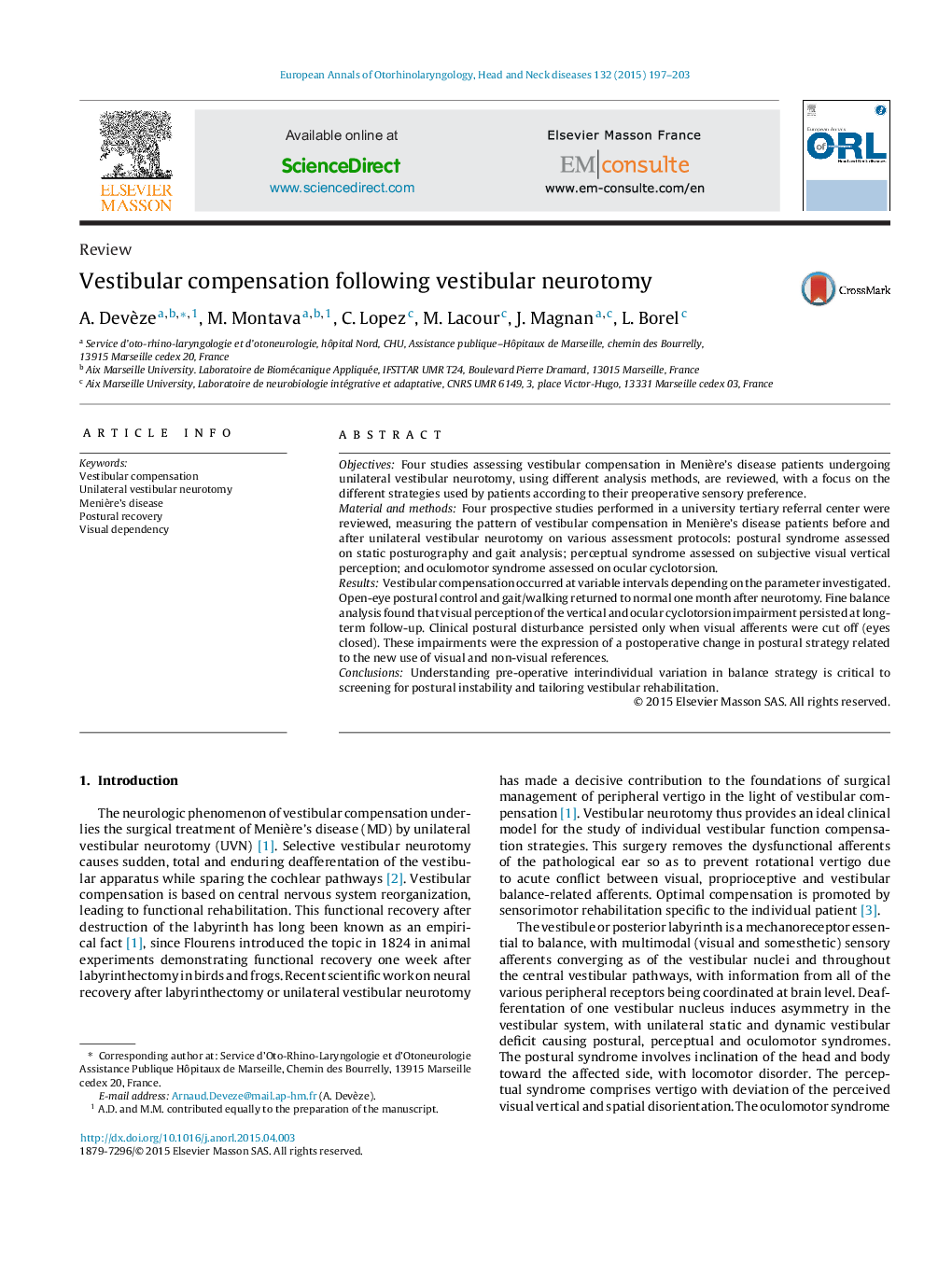| Article ID | Journal | Published Year | Pages | File Type |
|---|---|---|---|---|
| 4110096 | European Annals of Otorhinolaryngology, Head and Neck Diseases | 2015 | 7 Pages |
ObjectivesFour studies assessing vestibular compensation in Menière's disease patients undergoing unilateral vestibular neurotomy, using different analysis methods, are reviewed, with a focus on the different strategies used by patients according to their preoperative sensory preference.Material and methodsFour prospective studies performed in a university tertiary referral center were reviewed, measuring the pattern of vestibular compensation in Menière's disease patients before and after unilateral vestibular neurotomy on various assessment protocols: postural syndrome assessed on static posturography and gait analysis; perceptual syndrome assessed on subjective visual vertical perception; and oculomotor syndrome assessed on ocular cyclotorsion.ResultsVestibular compensation occurred at variable intervals depending on the parameter investigated. Open-eye postural control and gait/walking returned to normal one month after neurotomy. Fine balance analysis found that visual perception of the vertical and ocular cyclotorsion impairment persisted at long-term follow-up. Clinical postural disturbance persisted only when visual afferents were cut off (eyes closed). These impairments were the expression of a postoperative change in postural strategy related to the new use of visual and non-visual references.ConclusionsUnderstanding pre-operative interindividual variation in balance strategy is critical to screening for postural instability and tailoring vestibular rehabilitation.
